Continuing the 6th Session, on the morning of November 28, the National Assembly discussed in the hall the draft Law amending and supplementing a number of articles of the Law on Property Auction. The situation of abandoning deposits when auctioning assets was one of the contents discussed by National Assembly deputies.
Abandoning auction deposits to disrupt the market
Commenting on the draft law, delegate Pham Van Hoa ( Dong Thap delegation) agreed with the need to amend and supplement the draft law. The delegate requested the drafting agency to review and list the assets that must be auctioned as in the draft law. Is it complete or does it overlap with specialized laws?
"There are types of assets that can arise in life that are not recorded in the law, so should they not be auctioned or should the Government regulate newly arising assets so as not to miss them and assets that need to be quoted separately?", Mr. Hoa said.
Delegate Pham Van Hoa stated that amending the regulations on deposits and handling deposits in property auctions is very necessary to avoid taking advantage of participating in auctions not for the purpose of auctioning, but instead colluding and agreeing with each other to pay low prices, causing losses to the State budget, leading to negativity.
Mr. Hoa cited a number of cases of abandoning auction deposits, which "disrupted the market and overshadowed the image of the auction", causing negative public opinion in recent times. "Typically, the case of Tan Hoang Minh abandoning the deposit for land auctions in the new urban area of Thu Thiem, the auctions of car license plates or 3 sand mines in Hanoi", Mr. Hoa said.
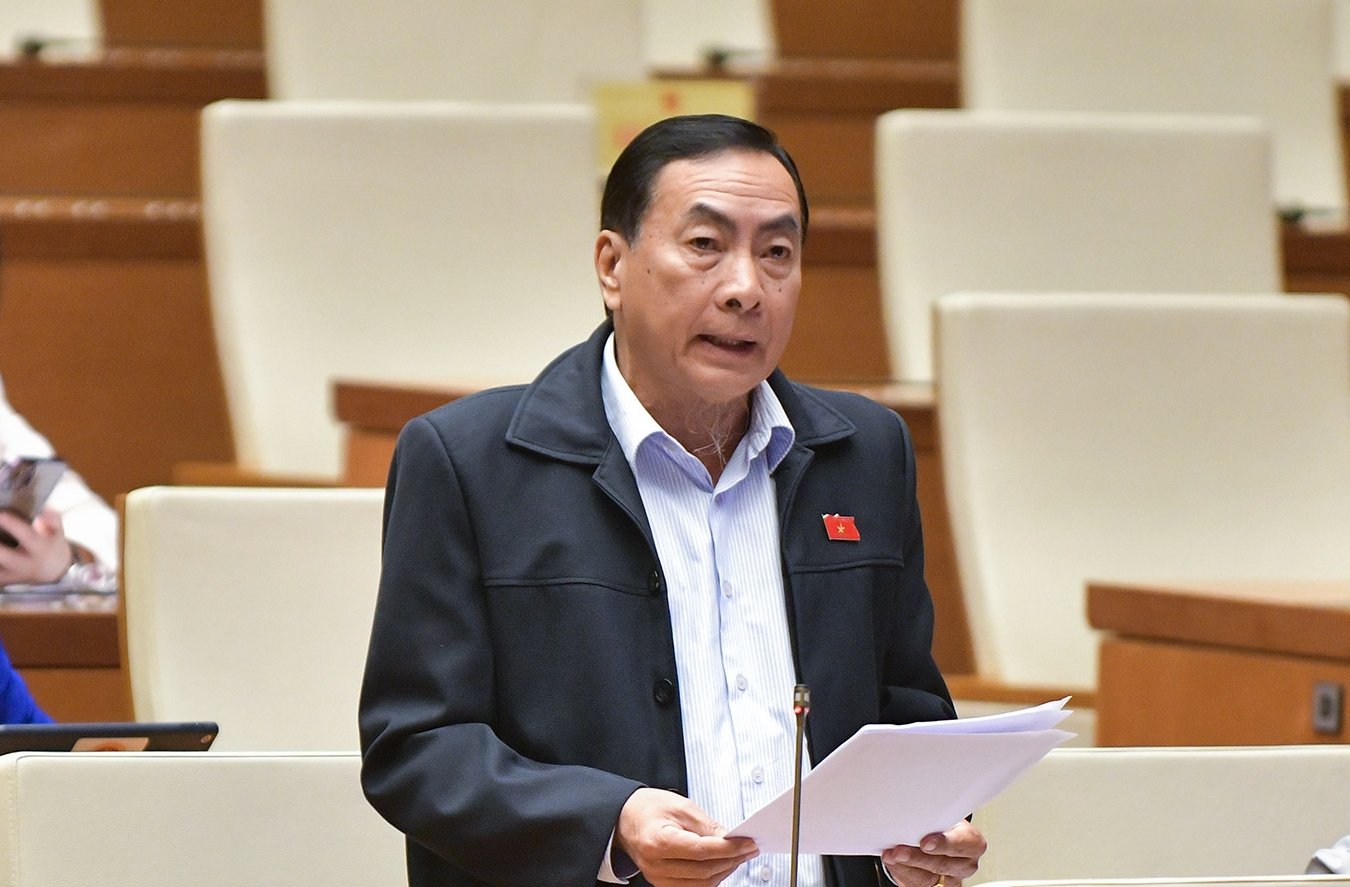
National Assembly Deputy Pham Van Hoa, Dong Thap delegation (Photo: Quochoi.vn).
To stop the situation of auction winners abandoning their deposits, Mr. Hoa said that measures should be taken such as raising the deposit level higher than current regulations, applying administrative sanctions, and not allowing them to participate in the next auction.
"Only then can we maintain discipline in asset auction activities, not allowing anyone with money to do whatever they want, disrupting the market," Mr. Hoa said, at the same time suggesting recognizing the results for the second highest bidder, without having to re-organize the auction to avoid costs.
Also participating in the discussion, delegate Phan Thi My Dung (Long An delegation) said that the current regulation of deposit level from 5 - 20% is appropriate. If it is raised too high, it will affect the freedom of transaction, reduce competition, and fewer people will participate in property auctions.
The female delegate mentioned some organizations and individuals participating in auctions with bad intentions, such as showing off their power or manipulating the market to form new price levels.
Ms. Dung proposed that after a certain period of time, if the auction winner fails to fulfill his financial obligations and cannot prove the reason for force majeure, in addition to losing the deposit, he will also be fined an additional amount. Of course, this fine must be based on the addition of relevant regulations and sanctions.
In particular, according to Ms. Dung, recently, many auctions have shown signs of abnormality, with prices being offered too high compared to the general level, especially for public assets (land use rights, mining rights), with prices offered being 204 times higher than the starting price.
"From a starting price of 24 billion VND, the winning bid price was up to 1,684 billion VND," the female delegate cited, saying that the law does not stipulate that the auctioneer or the person with the auctioned property has the right to stop or request to stop the auction to handle similar cases.
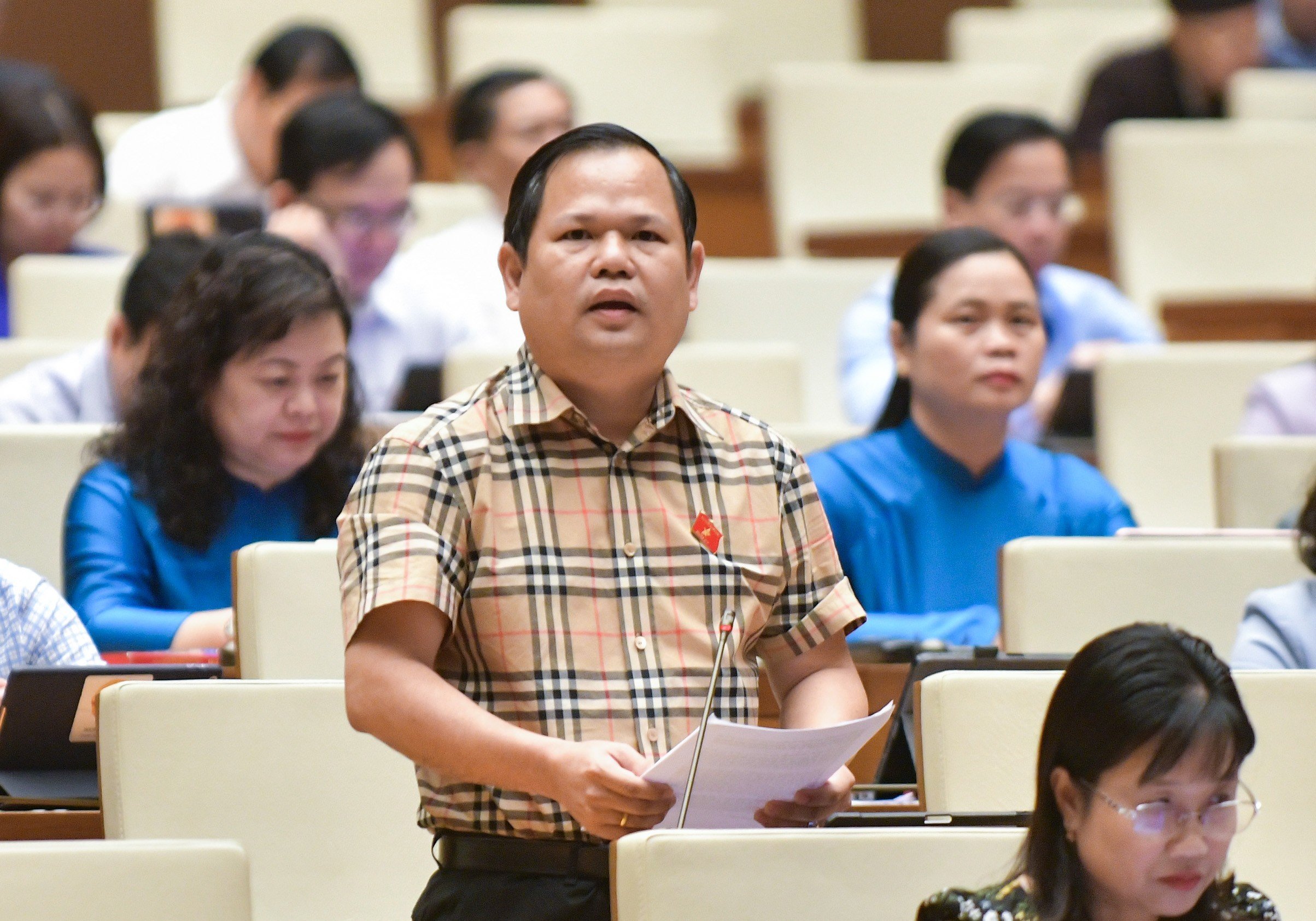
Delegate Nguyen Duy Thanh, Ca Mau delegation (Photo: Quochoi.vn).
Delegate Nguyen Duy Thanh (Ca Mau delegation) affirmed that there should be regulations to limit the situation of abandoned auction deposits.
According to Mr. Thanh, the current law stipulates a deposit of 5 - 20% of the starting price (after winning the auction, it will be converted into a deposit), while in many cases the starting price is low so the auction winner does not have to consider too much when making a deposit.
To limit the story of auction winners abandoning their deposits, especially the factor of group interests and auction manipulation, the delegate of Ca Mau province said that it is necessary to separate the pre-order money and the deposit.
The deposit can be 20 - 30% of the auction price, and must be paid immediately after the auction results are announced. If the auction winner does not pay, the results will be canceled and the auction will continue.
"Assuming the deposit that must be paid immediately is up to hundreds of billions of dong, thousands of billions of dong instead of just a few hundred million or a few billion dong, the auction winner will certainly be very careful when bidding," Mr. Thanh suggested.
The delegate also emphasized the possibility of referring to international experience and adding specific regulations in the direction of criminal handling of acts of abandoning auction deposits and showing signs of manipulation, disturbing order, and negatively affecting economic security.
"The Penal Code needs to supplement corresponding acts in property auction activities appropriately, to avoid price inflation and dumping, causing serious consequences like in the recent past," Mr. Thanh said.
The "blue army, red army" situation is quite sophisticated.
Speaking at the debate on sanctions and forms of handling for auction winners who give up their right to purchase the property, delegate Pham Van Thinh (Bac Giang delegation) said that this is a civil relationship, in all cases, the right to give up the auctioned property of the auction winner must be respected and protected.
"It should only be adjusted through other relationships, in this case, it is necessary to adjust the deposit," said Mr. Pham Van Thinh.
According to Mr. Thinh, when the auction is conducted in the form of continuous upward bidding, when the starting price reaches twice the initial starting price, the reserve price is allowed to be adjusted. Such a regulation will be more suitable to actual conditions.
The delegate also noted that this provision on deposit should only be applied to State assets put up for auction, and should not be adjusted for other assets.
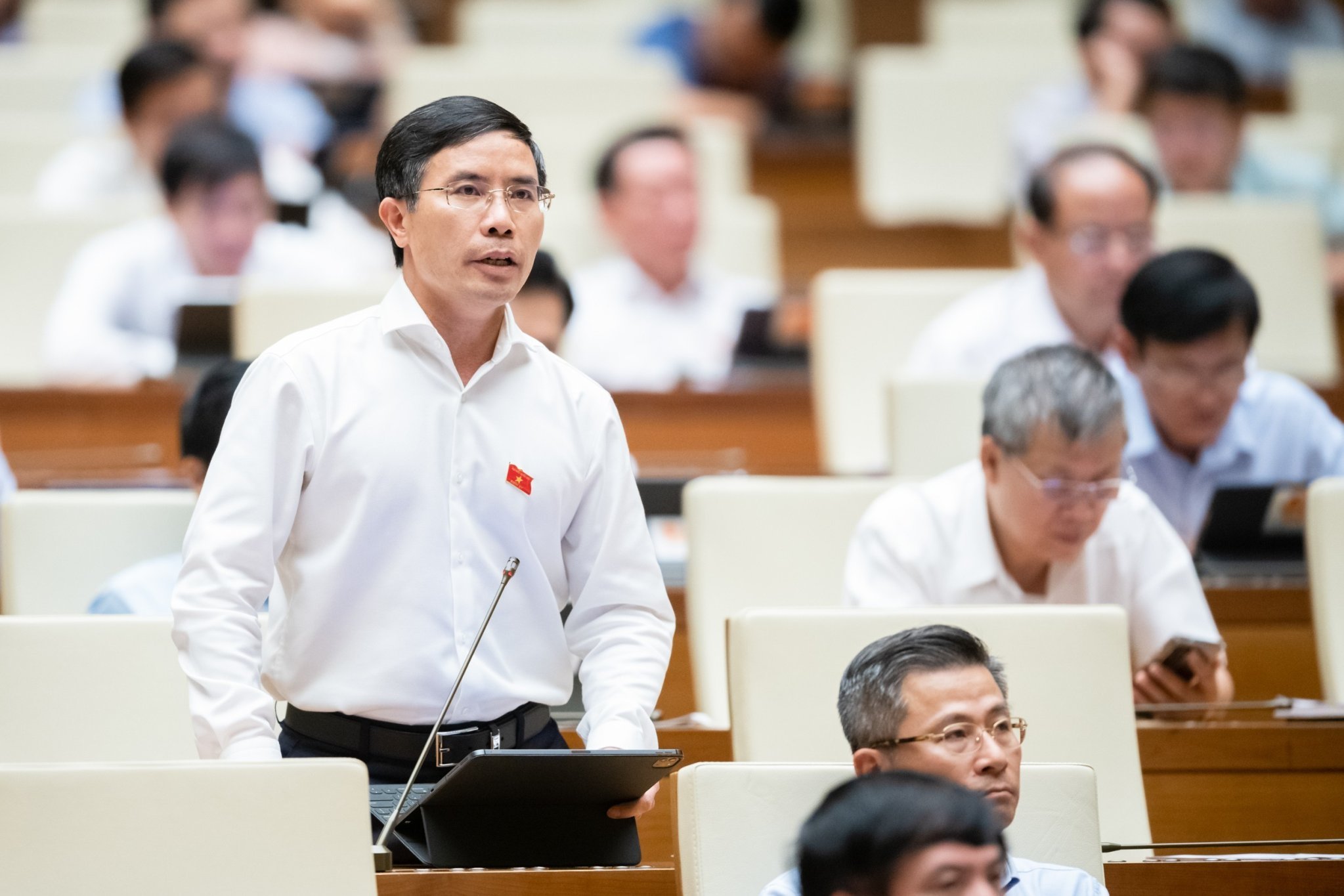
Delegate Pham Duc An, Hanoi delegation (Photo: Quochoi.vn).
Also contributing his opinion, delegate Pham Duc An (Hanoi delegation) said that the report of the Government and the Ministry of Justice mentioned negative issues arising during the auction process, such as the situation of teachers violating the law and violating professional ethics being administratively and criminally handled.
Delegates commented that the situation of collusion, collusion, “blue team, red team”, brokering, and coercive threats are quite sophisticated and tend to become more and more complicated. Therefore, when amending the law, there should be strict, public, and transparent regulations to prevent these acts.
Mr. An also raised the issue of price gouging and suggested that the auction would prolong the time to complete the procedures to purchase the property. Therefore, there should be solutions to deal with this problem, in which the 2-day property review time should be increased by at least 3 days.
Regarding the regulations related to deposits, delegates said that it is necessary to look at them from two aspects thoroughly, including the need to amend Article 51 to avoid price manipulation, causing difficulties for both valuation agencies and auction participants.
Delegate Pham Duc An said that it is necessary to enhance the responsibility of the Ministry of Justice in Article 77 of the draft law in collecting and compiling information of organizations participating in auctions to detect irregularities and coordinate with the Ministry of Public Security to investigate and handle them .
Source


![[Photo] National Assembly Chairman Tran Thanh Man receives United Nations Secretary-General Antonio Guterres](https://vphoto.vietnam.vn/thumb/1200x675/vietnam/resource/IMAGE/2025/10/25/1761390815792_ctqh-jpg.webp)


![[Photo] Prime Minister Pham Minh Chinh and United Nations Secretary-General Antonio Guterres attend the Press Conference of the Hanoi Convention Signing Ceremony](https://vphoto.vietnam.vn/thumb/1200x675/vietnam/resource/IMAGE/2025/10/25/1761391413866_conguoctt-jpg.webp)
![[Photo] Prime Minister Pham Minh Chinh receives United Nations Secretary-General Antonio Guterres](https://vphoto.vietnam.vn/thumb/1200x675/vietnam/resource/IMAGE/2025/10/25/1761390212729_dsc-1484-jpg.webp)





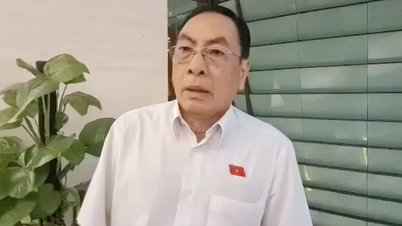

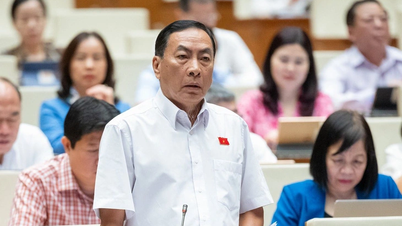

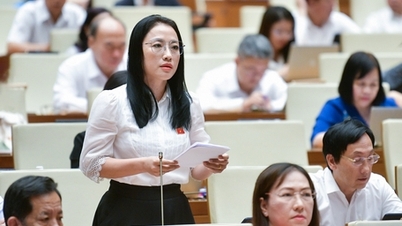






















![[Photo] General Secretary To Lam meets with General Secretary and President of Laos Thongloun Sisoulith](https://vphoto.vietnam.vn/thumb/1200x675/vietnam/resource/IMAGE/2025/10/25/1761380913135_a1-bnd-4751-1374-7632-jpg.webp)




































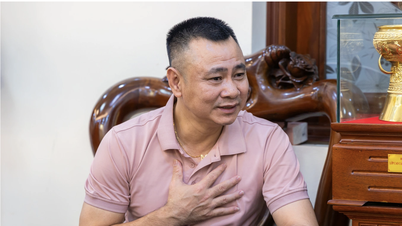




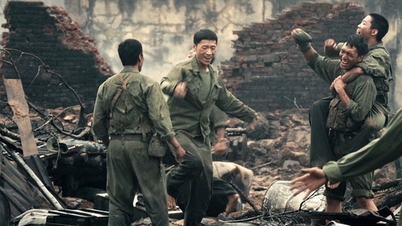






























Comment (0)